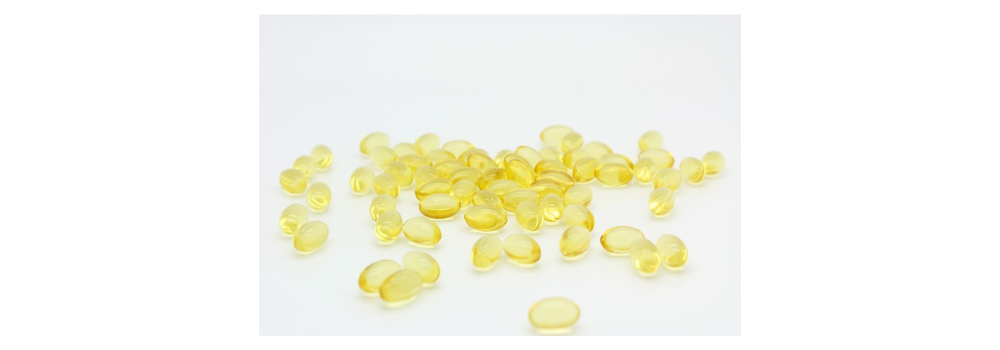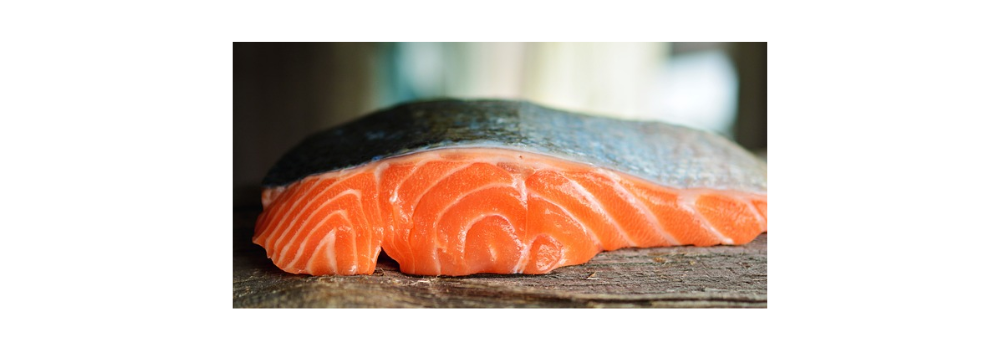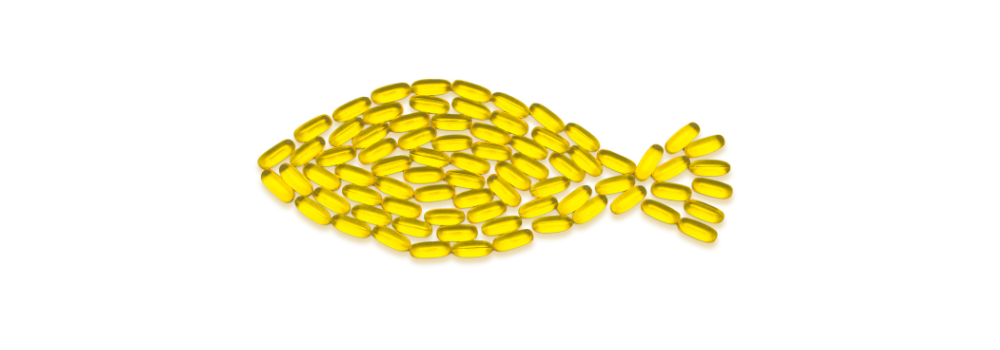
I field this question regularly, "Why do I even need to give fish oil to my dog? Isn't that already added to their food?
This is an important question and one I will answer throughout this blog, as Omega-3 fatty acids are essential to the regulation of many bodily functions and must be consumed in our pets' diets, as the body cannot synthesize them on its own.
Unfortunately, Omega 3 fatty acids are vulnerable to degradation when exposed to air, light, and heat. When added to kibble, many of them oxidize over time. This process occurs quickly and actually turns them into pro-inflammatory agents. So if your dog has flaky skin, eats a diet of processed ingredients, and does not have a silky coat, you might want to consider fish oil.
Why should you care that your pet is getting enough?
Recent studies suggest that more than two-thirds (68%) of American adults and an overwhelming 95% of children below 18 years are not consuming sufficient amounts of EPA and DHA daily. This intake falls short of the recommendations set forth in the US Dietary Guidelines for Americans (1). If that means humans are falling short, I believe that virtually all of our pets are not getting enough bioavailable forms of DHA and EPA in their processed foods.

Does fish oil help allergies in dogs?
There are many studies showing the positive effects of fish oil on allergies and asthma in humans and animals (2)(3).
Omega-6 fatty acids tend to promote inflammation. They are beneficial for the body's immune response, helping protect us against infection. However, when these omega-6 fatty acids are consumed in excess, they may contribute to increased inflammation, which can potentially exacerbate conditions like allergies.
On the other hand, Omega-3 fatty acids, particularly EPA (eicosapentaenoic acid) and DHA (docosahexaenoic acid), have anti-inflammatory properties. They can help reduce the production of molecules and substances linked to inflammation.
The balance or ratio between Omega-6 and Omega-3 fatty acids in the diet is critical. A diet with a high Omega-6 to Omega-3 ratio can lead to an overactive inflammatory response. In contrast, a balanced or lower Omega-6 to Omega-3 ratio can help manage or decrease inflammation.
In the context of allergies, which involve an overactive immune response leading to inflammation, maintaining a balanced Omega-6 to Omega-3 ratio can help manage the inflammatory response. For instance, in certain cases of atopic dermatitis or allergic skin reactions, supplementing with Omega-3 fatty acids (like those found in fish oil) may help decrease symptoms by reducing inflammation.
There are many reasons why a dog's diet may contribute to what appears to be allergies. How many people do you know that are allergic to chicken? Can you think of one person? We are eating the same chicken as dogs, aren't we? Considering that chicken is the most commonly found protein in processed pet food, could it be possible it is vilified because of this? I'm not saying that we need to feed chicken, my point is that it is the most commonly found protein in commercial dog food which historically has a high Omega 6 to Omega 3 ratio.

As a veterinarian, I can tell you that I have literally heard hundreds of times from pet parents about their pet's allergy to chicken. It makes sense that switching off a diet with chicken would lead to a healthier diet that may lead to less itchy skin, but in reality, the switch from a food with a high Omega 6:3 ratio to one with a lower Omega 6:3 ratio would be the culprit, not the chicken! Can I get a witness?
The typical Western diet often has a skewed Omega-6 to Omega-3 ratio that is much higher than the ideal balance for our bodies. While our ancestors consumed these essential fatty acids in a ratio of about 1:1, modern Western diets have drastically deviated from this balance. Currently, the Omega-6 to Omega-3 ratio in the typical Western diet ranges between 10:1 to as high as 30:1, and on average, it is reported to be around 15:1 to 17:1(4)
AAFCO recommends a maximum Omega 6:3 ratio of 30:1.
This significant shift towards Omega-6 fatty acids is largely due to changes in dietary patterns, including increased consumption of processed foods and vegetable oils rich in Omega-6 and decreased intake of foods rich in Omega-3, like certain fish and nuts.
Most health organizations and Mount Sinai Hospital recommend a ratio of 2:1 to 4:1, which is consistent with the Mediterranean diet, which is high in fish and healthy fats.
You can see why it might seem unexpected that AAFCO standards permit such high levels of omega-6 fatty acids relative to omega-3 in pet food. But when you consider that most mainstream pet foods are highly processed, the high ratio becomes more comprehensible, especially in a grain-based diet. Pet foods that are home-cooked, raw, or certain high-quality types made with grass-fed meats will present a much lower omega-6 to omega-3 fatty acid ratio.
The prevalence of high omega-6 to omega-3 ratios in commercial pet food elucidates why numerous pet owners see advantages in giving their pets fish oil - their pets' diets simply lack sufficient omega-3 fatty acids. Therefore, most pets can benefit from supplementation of fish oil added to their meals.
How Do I Choose a Good Fish Oil for My Dog?

The inclusion of DHA through salmon oil, herring, mackerel, sardine, algae, or krill oil could be one of the most important overall strategies to promote general health. Its contribution to combatting inflammatory diseases, relieving allergies, support cognitive health in both puppies and older dogs are just a few important considerations.
Make sure you know that the source of the fish is wild-caught versus farm-raised. Wild salmon or deep water fish have the highest concentration of DHA and EPA and lower amounts of toxins such as mercury, lead, and dioxins. Look for fish that are sustainably sourced to help protect the environment and ensure future supplies.
Cod liver oil has high levels of Vitamin A and D in it. It is better to avoid this unless you are using it in a diet that needs added Vitamin A and D, or your pet may get too much.
Fish Oil and Heart Disease
Fun fact about Omega 3's: they are highest in cold water fish because they are a type of "biological antifreeze" as they maintain cell membrane fluidity. This makes sense as they thin the blood. They are also found in grass-fed animals and leafy green vegetables in small amounts. Fish oil has been shown to decrease the incidence of atrial fibrillation in humans, and a benefit to heart disease patients.
Fish Oil Improves Neurologic Development and Cognitive Function

Does my puppy need fish oil?
One study published in the Journal of the American Veterinary Medical Association (JAVMA) found that puppies fed diets fortified with fish oil from 8 to 12 months showed improvements in cognitive learning, memory, psychomotor, immunologic, and retinal functions.
Omega 3 fatty acids, especially docosahexaenoic acid, are needed to ensure proper development of the central nervous system and for cognitive function. The brain and nervous system are primarily made up of fat and fatty acids are important in maintaining the integrity of all cell membranes.
The DHA supplementation of puppies has been proven in studies conducted over the past few years and has increased the ability to learn and maintain a variety of skill sets. Compared with other dogs, senior pets with cognitive problems had a higher ability to recognize their owners.

Can fish oil benefit behavior? Surprising Omega benefits
DHA is an essential nutrient for brain development, and it has been found to improve cognitive functions in pets. It can increase memory, attention span, and learning skills in dogs, cats, and even horses. A study in the AVMA journal found that puppies supplemented with fish oil had higher levels of DHA in their serum. These puppies responded significantly better to their initial vaccinations and performed better on several cognitive tests (5).
If you think about how many pets are surrendered for behavioral problems, maybe we should rethink that a diet supplemented in DHA would support neuro-cognitive development should be of paramount importance to pet parents.
Plasma concentrations of DHA (a type of omega-3 fatty acid found in fish oil) were lower in aggressive dogs compared to control dogs. While the study didn't conclusively prove that the decrease in aggression was due to DHA, it did suggest a possible correlation (6)(7)(8).
In conclusion, fish oil is a beneficial supplement that pet owners should consider incorporating into their pets' diets. It can enhance cognitive functions, promote healthy skin and coat, increase energy levels, improve joint health, and support vision development. As with any supplement, it is essential to consult with a veterinarian to determine the correct dosage for your pet. Pet owners who opt to supplement their pet's diet with fish oil can expect to see improvements in their pet's overall health and well-being.

Supports heart health
The study shows dogs suffering from heart failure and fish oil supplements have longer lives. Fish oil may decrease ventricular rate and heart rate among dogs with heart rhythms. Besides increasing the metabolic rate within the muscle, it decreases the heart's chances for heart problems. Healthy hearts mean healthy pets!
It supports the immune system
It can help you smooth your pet's skin and immune systems and fight off allergies. A well-balanced immune system is important to maintain a healthy dog's life and prolong its lifespan.
Fish Oil Slows the Progression of Chronic Kidney Disease

Fish oil is used for chronic kidney disease. Research has demonstrated that omega-3 fatty acids can reduce pressure within the glomerulus, lessen glomerular damage, and decrease proteinuria(9). The ideal dosage for patients with glomerulonephritis (GN) has yet to be determined. A supplemental dose of 0.25-0.5 g/kg of n-3 polyunsaturated fatty acids, which has been inferred from human studies, could potentially be effective for pets and other companion animals(10).

Benefits arthritis:
As pets age, they often experience joint pain and stiffness, which can make it difficult for them to move around. Fish oil contains omega-3 fatty acids, which have anti-inflammatory properties that can reduce joint inflammation, improve mobility, and alleviate symptoms of arthritis in pets.
The dosing for arthritis in dogs is higher than typical recommendations for supplementation. The Colorado State College of Veterinary Medicine has a chart that is helpful to understand dosing(11). I'm rarely successful at dosing fish oil for dogs at this higher recommended dose for osteoarthritis. It's critical to start gradually and work up slowly.
You should check with your veterinarian about your pet's unique circumstances to determine a dosing plan. The Colorado State CVM states that "the maximum dose is not tolerated by all animals." They suggest starting with 1/4 of the recommended dose and increasing gradually over weeks. The most common adverse side effects are diarrhea and vomiting, not to mention your dog just might start smelling like a fish! Just like the saying goes.....some is better than none! So find that sweet spot for your pet.
Best Dog Fish Oil Products

Holistic Vet Blend Omega-3 blend is an easy way to add fish oil to your dog's kibble. We also have many recipe options for you to choose from, incorporating essential vitamins, minerals, and taurine. You can prepare homemade dog food and add fish oil when you serve their meal. This ensures the oil is fresh and not oxidized so that your pet can benefit the most from it.
What are dog-safe foods that naturally contain fish oil?

Omega fatty acids are found in salmon, mackerel, herring, sardines, and krill oil. Plant sources include flaxseed oil, chia seeds, and walnuts, but these are not bioavailable to pets and will lead to an overweight pet before they would get any benefit from the fatty acids as they are very inefficient at converting them to a usable form.
Do I need to give my dog fish oil if it is already added to my dog's food?

The answer is a resounding yes! Fish oil in processed foods is vulnerable to oxidation and becoming rancid.
Fish oil should be protected from oxygen, heat, and light.
Why is this a problem? When fish oil becomes rancid because it is not stored properly or is old, it loses all of its benefits and actually develops disease-promoting qualities. Rancid fats have pro-inflammatory and carcinogenic actions.
So basically, by feeding kibble enhanced with Omega fatty acids, we are basically offering our pets rancid fatty acids. Add to that the high Omega-6: Omega-3 fatty acid ratio in kibble, and you can see why it is so important to offer fresh food and Omega-3 along with your dog's diet.

What are the side effects of too much fish oil for dogs?
Too much fish oil may deplete Vitamin E. This should not happen when you supplement with the recommended amount and has only been shown in sled dogs fed a fish diet.
According to the NRC, PUFA increases the Vitamin E requirement by 1.5 to 2 IU per gram of PUFA. So if you have 1 gram of fish oil (most capsules weigh this much), you would need an additional 2.4 IU. Most diets provide much more than this, and most Vitamin E capsules are 100 to 400 IU. So it should not be necessary so long as you are not megadosing.
Does fish oil trigger allergies? Please make this myth go away!
Many people erroneously feel that their pet is allergic to fish based on a food allergy test. Such food allergy tests have no studies to support their validity, and there is currently no veterinary dermatologist who will stand behind their validity.
If a pet does poorly on fish-based food, it is much more likely they are reacting to the toxins or chemicals in the food. Fish that make their way into pet food are likely unfit for human consumption and ridden with toxins from farm-raised fish or fish that do not come from deep water environments that are less likely to contain toxins, heavy metals, and polychlorinated biphenyls.

Can you give a dog human fish oil supplements? How much fish oil?
Yes, you can add human fish oil supplements to your dog's diet. However, it's crucial to consult with your veterinarian before starting any new supplement regimen for your dog. They can provide guidance on the appropriate dosage based on your dog's weight and overall health. Overdosing in fish oil can lead to side effects like diarrhea, clotting problems, or an imbalance in vitamins.
A good fish oil that is readily available is Nature Made 1,200 mg Omega oil from fish. Each capsule has 360 mg EPA and 300 mg DHA. This is an affordable option for large dogs. I would not recommend it for dogs under 25 pounds. A 25-pound dog would take 1 a day. A 50 to 75-pound dog would take 2-3 per day, and a 75-pound dog would take 4-5. Check with your veterinarian regarding adding any supplement to your dog's regimen, and always start with the lowest amount and gradually work up over a matter of weeks. For example, a 70-pound Labrador would start with one per day for 2 weeks. Increase to 2 per day for 2 weeks. Consider giving it with food, and decrease if there are loose stools or stomach upset. If your dog doesn't blink, then add an additional capsule. And as always, check with your veterinarian if you are unsure.
Human fish oil supplements are not a great option for cats as there are larger amounts in the capsules, and you need to go through the oil quickly, or it will get rancid. Cats are just too small for these bottles designed for the average 150-pound human fish oil supplements.

Can I substitute flax oil for fish oil and get the same benefits?
No. You can, but your dog cannot. Flax oil is a very poor source of omega-3 fatty acids for dogs and cats as they are inefficient at transforming plant oils to Omega-3 fatty acids. Alternative sources are krill oil and algae sources of Omega-3 fatty acids. While flax oil is a great alternative for humans, it is not going to contribute to your dog's health as it cannot achieve optimal absorption due to decreased bioavailability.
How much fish oil can I give my dog for itchy skin?
- Consultation: Always consult your vet before starting any new supplement regimen for your pet. They can provide you with the most appropriate dosage based on your dog's specific needs. Dosing varies greatly based on your pet's individual needs.
- Weight-based Dosage: The general rule of thumb is to give fish oil in a dosage based on your dog's weight. A common recommendation is to give 20 mg of EPA per pound of body weight.
- Start Slowly: Begin with a small dose to see how your dog tolerates it. If there are no adverse reactions, you can gradually increase the dosage over a period of weeks.
- Monitor Your Dog: Keep an eye on your dog's reaction to the fish oil. Look out for signs of discomfort, such as diarrhea or vomiting, which could indicate that the dosage is too high or the oil doesn't agree with your dog.
- Balanced Diet: Ensure your dog is receiving a balanced diet. Fish oil is a supplement and should not replace a complete, balanced diet.
Your vet may increase the dose for certain diseases such as kidney disease and osteoarthritis, but I find that many pets cannot tolerate this high level of supplementation and will develop diarrhea, and often, stomach upset occurs.

How long does it take for fish oil to help dogs?
Administer the fish oil consistently. It may take a few weeks to see improvements in your dog's skin condition. It can take several weeks to work up to the recommended amount. You should give the target amount for 4-6 weeks before you see a benefit in the way of allergy support, changes in a pet's coat silky smooth texture, or itchy skin.
Is fish oil good for dogs?
In conclusion, fish oils benefit merely all aspects of a pet's health. This is one supplement that pet owners should consider incorporating into their pets' diets. It can enhance cognitive functions, promote healthy skin and coat, increase energy levels, improve joint health, and support vision development. As with any supplement, it is essential to consult with a veterinarian to determine the correct dosage for your pet. Pet owners who opt to supplement their pet's diet with fish oil can expect to see improvements in their pet's overall health and well-being.
I cannot emphasize enough the importance of gradual introduction over weeks of fish oil, as every dog's body is different. Always seek the guidance of your veterinarian for your pet's individual situation, especially in the case of chronic disease. The best fish oil is the one your pet does well on. Check out Holistic Vet Blend's fish oil supplement here.

References for fish oil benefits:
1. Murphy RA, Devarshi PP, Ekimura S, Marshall K, Hazels Mitmesser S. Long-chain omega-3 fatty acid serum concentrations across life stages in the USA: an analysis of NHANES 2011-2012. BMJ Open. 2021;11(5):e043301. Published 2021 May 10. doi:10.1136/bmjopen-2020-043301.
(2)Thomsen BJ, Chow EY, Sapijaszko MJ. The Potential Uses of Omega-3 Fatty Acids in Dermatology: A Review. J Cutan Med Surg. 2020 Sep/Oct;24(5):481-494. doi: 10.1177/1203475420929925. Epub 2020 May 28. PMID: 32463305.
(3)Thierry Olivry, Rosanna Marsella, Andrew Hillier,The ACVD task force on canine atopic dermatitis (XXIII): are essential fatty acids effective?,Veterinary Immunology and Immunopathology,Volume 81, Issues 3–4,2001,Pages 347-362,
(4)Simopoulos AP. The importance of the ratio of omega-6/omega-3 essential fatty acids. Biomed Pharmacother. 2002 Oct;56(8):365-79. doi: 10.1016/s0753-3322(02)00253-6. PMID: 12442909.
(5)Zicker SC, Jewell DE, Yamka RM, Milgram NW. Evaluation of cognitive learning, memory, psychomotor, immunologic, and retinal functions in healthy puppies fed foods fortified with docosahexaenoic acid-rich fish oil from 8 to 52 weeks of age. J Am Vet Med Assoc. 2012 Sep 1;241(5):583-94. doi: 10.2460/javma.241.5.583. PMID: 22916855.
(6)Marzieh Rahimi Niyyat, Mohammad Azizzadeh, Javad Khoshnegah,Effect of Supplementation With Omega-3 Fatty Acids, Magnesium, and Zinc on Canine Behavioral Disorders: Results of a Pilot Study,Topics in Companion Animal Medicine,Volume 33, Issue 4,2018,Pages 150-155,
(6)Tomohito Hamazaki, Kei Hamazaki,Fish oils and aggression or hostility,Progress in Lipid Research,Volume 47, Issue 4,2008,Pages 221-232,
(7)Magalhães TR, Lourenço AL, Gregório H, Queiroga FL. Therapeutic Effect of EPA/DHA Supplementation in Neoplastic and Non-neoplastic Companion Animal Diseases: A Systematic Review. In Vivo. 2021 May-Jun;35(3):1419-1436. doi: 10.21873/invivo.12394. Epub 2021 Apr 28. PMID: 33910819; PMCID: PMC8193331.
(8)Marzieh Rahimi Niyyat, Mohammad Azizzadeh, Javad Khoshnegah,Effect of Supplementation With Omega-3 Fatty Acids, Magnesium, and Zinc on Canine Behavioral Disorders: Results of a Pilot Study,Topics in Companion Animal Medicine,Volume 33, Issue 4,2018,Pages 150-155.
(9)Francey T: Current Recommendations for the Treatment of Glomerulonephritis. , 18th ed. ECVIM-CA Congress 2008.
(10)Quimby J: How to Approach Proteinuria. Southwest Veterinary Symposium 2017. Dosing for renal dz extrapolated
(11) https://vetmedbiosci.colostate.edu/vth/services/orthopedic-medicine/fish-oil-dosing/










